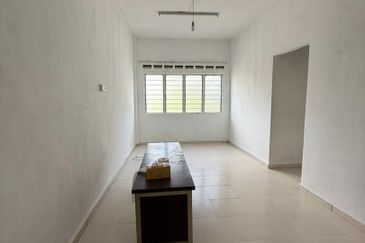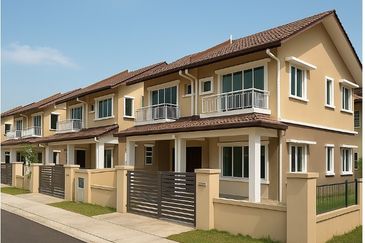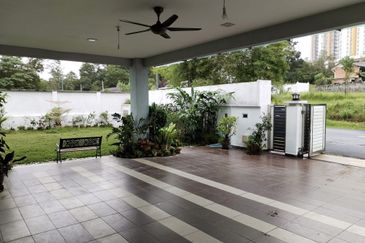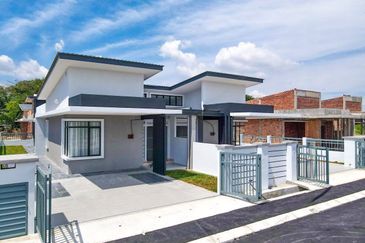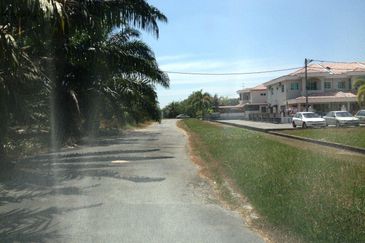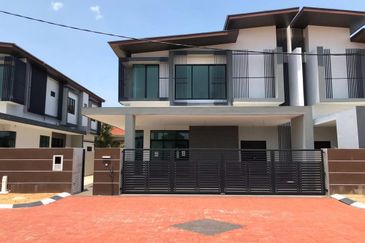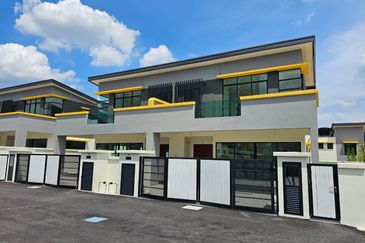
- Imposing a vacancy tax on developers on these properties will not in any way help to resolve the problem and will only result in new houses being more expensive as developers will pass on the cost of any additional taxes to future launches.
- Homeowners have their own set of arguments for occasionally leaving their properties vacant. So, to impose such a tax on homeowners is only inviting criticism and ridicule on the government.
A recent article in a daily portal reported that Khazanah Research Institute (KRI) had urged the government to study the proposal to impose vacancy tax on unoccupied and unsold residential and commercial units, citing it would “help prevent an oversupply of products, which contribute to a property glut, such as high-priced high-rise units”. The article also stated that the imposition of a vacancy tax is practised in several major cities around the world such as Vancouver in Canada and Melbourne in Australia.
Firstly, we acknowledge that Malaysia is facing a very serious problem of unsold completed properties or overhang properties. As at 2022, National Property Information Centre (Napic) reported the value of overhang properties in the residential sector was almost RM18.41 billion, comprising 27,746 units.
However, the National House Buyers Association (HBA) is of the view that imposing a vacancy tax on unoccupied and unsold properties units targeting property developers is not appropriate as the circumstances and reasons for the existence of such vacant properties in Malaysia are very different from that in Australia or Canada.
Normally imposed on owners, not developers
Although the article correctly pointed out that countries such as Australia and Canada do impose a vacancy tax, the reasons and target segments for such tax are quite different from what were suggested for Malaysia.
From what we can find from internet sources, the vacancy tax in Vancouver and Melbourne is imposed on end-owners who leave completed homes vacant for more than six months. The revenue from such vacancy tax will then be used for new affordable housing schemes.
The reason vacancy tax is imposed in Vancouver or other similar places is to compel the return of empty or under-utilised properties for productive economic output such as long-term rental homes for people who live and work in such cities, so that others are not deprived from using the land or properties there. Hence, the intention is to discourage wastage of scarce resources.
It was also attributed to a previous trend where foreigners, especially Chinese nationals, were purchasing blocks of properties but left them idle and unkempt. Hence, the vacancy tax is to ensure residential properties are occupied to create a vibrant neighbourhood.
However, the intention of KRI’s proposed vacancy tax in Malaysia is not targeted towards owners of such vacant properties but on property developers who have been trying to sell such properties without success.
What is the justification for imposing such a vacancy tax? If it is to penalise developers for having unsold completed units, then why did the government offer attractive tax incentives for such unsold completed properties under the Home Ownership Campaigns (HOC)? Besides that, developers too must keep paying monthly maintenance charges and sinking funds for as long as their units in stratified properties are unsold.
Hence, imposing vacancy tax on developers for unsold completed properties will not in any way help to solve the problem. Do not forget that property developers are profit-oriented, and whatever taxes imposed on them are factored into the selling price, making property prices even more unaffordable.
Intended to prevent hoarding
It has been reported that Hong Kong is working towards imposing vacancy tax on unsold completed property units on property developers. The rate is suggested to be levied at 200% of the annual rental value (based on the market rates and assessed by government officials). In Singapore, there is also vacancy tax imposed on developers on unsold completed units.
However, the reasons for Singapore and Hong Kong are very different from Malaysia. In these densely populated countries, it is because the developers are only selling a small percentage of their completed properties and deliberately hoarding the bulk of it with the intention of selling them later when prices appreciate further. Besides developers, this hoarding is practiced by speculators, i.e. financially capable property investors who intend to purely flip the properties with no intention of occupation.
Hoping to create artificial demand, these property developers and investors are solely driven by greed. In such cases, HBA will agree that a hefty vacancy tax be imposed to compel them to sell the completed units. But then, to accuse someone as a hoarder is treading on a grey area.
In the Malaysia context, the situation is different as these developers have been actively trying to sell these completed units but without success. They are aware of the physical deterioration to their inventories with the passing of time and the cost of maintaining their inventories.
HBA is generally not sympathetic towards developers for the problem of overhang properties as such problems have been created by the developers themselves for continuously building what the rakyat cannot afford to buy. However, to reiterate, imposing a vacancy tax on developers on these properties will not in any way help to resolve the problem and will only result in new houses being more expensive as developers will pass on the cost of any additional taxes to future launches. If developers are holding too much inventory, they will surely have to assess this relative to their balance sheet, holding costs, opportunity costs and future expectations. The market will always find its own equilibrium.
Bankers and investment research analysts are forecasting the potential implementation of vacancy tax to have a negative impact on the overall property market. The country currently needs more foreign investments, so a vacancy tax will be counter-productive. In fact, a vacancy tax is expected to exacerbate the problem of housing affordability and availability in the country.
A burden to homeowners
As for the proposal on imposing vacancy tax on homeowners, HBA thinks it is something misguided. Already, house owners are mandatorily required to pay quit rent to the land offices, assessment rates to the local councils and income tax on their earnings, besides finance costs for the house purchase. For stratified properties they have to pay monthly maintenance charges and sinking fund.
Homeowners have their own set of arguments for occasionally leaving their properties vacant. So, to impose such a tax on homeowners is only inviting criticism and ridicule on the government.
Feasibility studies needed before building
Back to the root problem – overhang properties is mainly due to unmet housing demand related to varying economic climates, housing preferences, market sentiment, housing affordability, credit accessibility, as well as demographics and lifestyle changes. It can only be addressed by a collaborative measure that involves all industry stakeholders. If the government aims to resolve the overhang problem holistically, a detailed study on the overhang situation is necessary.
There have been suggestions for independent market and feasibility studies to be done before any project is embarked on. This would be a more implementable measure that should be done to minimise the risk of unsold units compounding into a gross oversupply in the market. It should serve as a check and balance mechanism. The financial institution should obtain a full market survey and feasibility study with the property developers’ proposed pricing before they approve any loan facilities. Ideally, the study should be conducted at the planning stage, but as the actual implementation date of the project may be at a much later date where the market may have changed, the study can be done as part of the submission for development order application at the local council or when applying for bridging loan or project financing. Also of paramount importance is that the study must be commissioned independently by qualified professionals within the relevant sectors to ensure the objectivity of study outcomes.
Finally, there is a need for an integrated housing database that consolidates data from multiple agencies at federal, state, and local levels – in order to not only help industry players gauge the latest market trends, but also provide a better understanding on how new launches perform in matching the local affordability level; thereby ensuring the availability of an adequate supply and diversity of housing opportunities in the country.
Datuk Chang Kim Loong is the Hon Secretary-general of the National House Buyers Association (HBA).
HBA can be contacted at:
Email: [email protected]
Website: www.hba.org.my
Tel: +6012 334 5676
Looking to buy a home? Discover exclusive rewards and vouchers for your dream home when you sign in to EdgeProp START.
TOP PICKS BY EDGEPROP

Kinrara Residence
Bandar Kinrara Puchong, Selangor
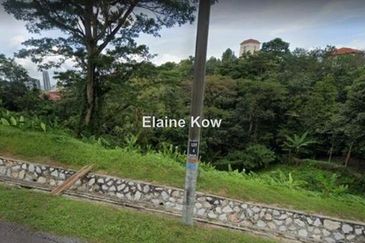
Land for Sale at Bukit Tunku (Kenny Hills)
Kenny Hills (Bukit Tunku), Kuala Lumpur

KGSAAS Golf Club, Seksyen 13
Shah Alam, Selangor

Villa Serene Kiara
Desa Sri Hartamas, Kuala Lumpur



